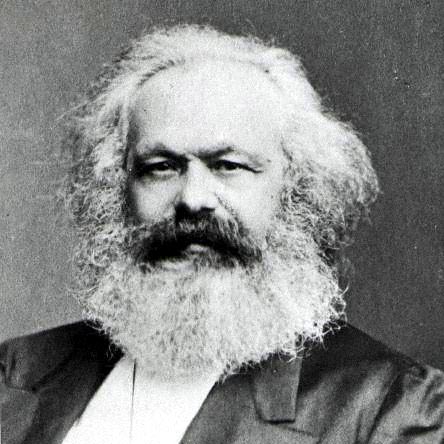THE ALIENATION OF LABOR.
 |
| KARL MARX |
According to Karl Marx; in his manuscript
called “Economic and Philosophical Manuscript of 1844” which masterminded
alienation, says in capitalism epoch, the workers are free as compared with the
slave and the serfs, but they do not own the means of production, and in order
to survive, they must sell their labor to the capitalist which are bought at
just a meager sum.
This means that the individual’s labor has
been alienated. According to Kant, alienation means selling or giving something
away. To Marx, man is alienated from:
1. Nature
2. Himself
3. His species-being and
4. Other men.
Alienation from nature: - man is by nature
which lives within nature (environment) and depend on nature (natural
resource). The sensual external world “nature is continuous interchange in
order not to die”.
Therefore man is in intimate relationship with
both physical (body and products) and mental (natural resources) and to the
object of nature (man) thus nature is interdependent – man depends on his sense
and use natural resources to produce something suitable for his living.
This relationship is broken in capitalism –
man is alienated from nature (his sense) and the products of his activity, work
and labor.
The
embodiment of man’s labor into an object which is turn into a physical thing is
a product called “objectification of labor” man puts his life into what he
produces thus becomes objectified and then alienated from what he has produced
– “the worker puts his life into the object and his life then belongs no longer
to himself, but to the object; and the object is owned by someone else – the
capitalist”.
Alienation from himself: - this is
alienation by the process of production. Mans work is not voluntary; but impose
upon him; he has a felling of misery instead of well-felling.
He denies himself and fulfills the wills of
the work.
He does not freely develop his physical and
mental capacity but is instead, physically exhausted and mentally debased – the
machines at the work factories determine how man should behave and work.
The worker then fells like human being only
during his leisure hours – break time. The reason why he is alienated is that,
the worker is not for himself but for the employer (capitalist).
Alienation from man’s species-being:-the
species characters of human being is free will, free conscious, and free
acting. Man is alienated from his truly human nature – “man makes his life
activities themselves an object of his free will and consciousness”.
Although animals can produce nests and
dwellings as in birds, ants, but their production of things is limited to what
is strictly required for themselves and their young ones. Man on the other hand
produces universally – he produces in the manner which every human being should
understand and be applicable to all human being.
The worker feels himself to be freely active
in his animal functions thus eating, drinking and procreation – activities done
by animals. This denotes that man has been alienated and reduced from his
species being to the species of animals.
Alienation from other men: - the alienation
of man from the products of his labor, from his productivity or activities and
from his species-being all leads to the alienation of man to other men. There
is the breakdown of human relationship.
Man sees his fellow man as a worker whose
labor is bought and sold but not a full member of the society. There is no
trust for his fellows and he sees his fellow as exploiters therefore separates
himself from them.
